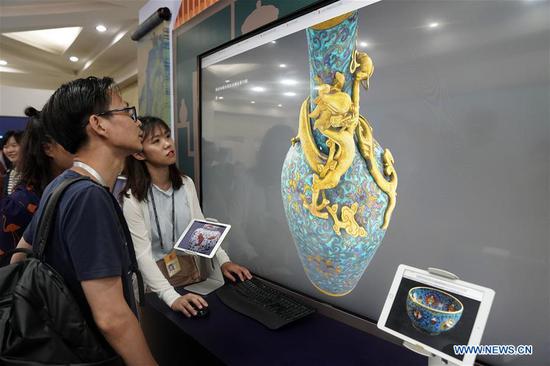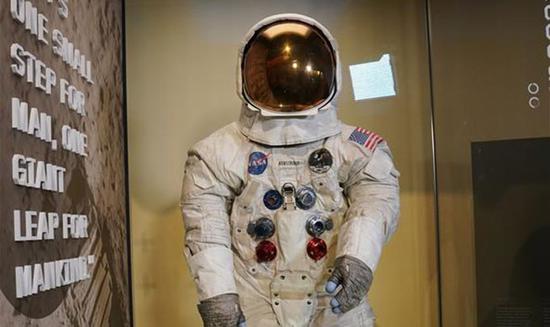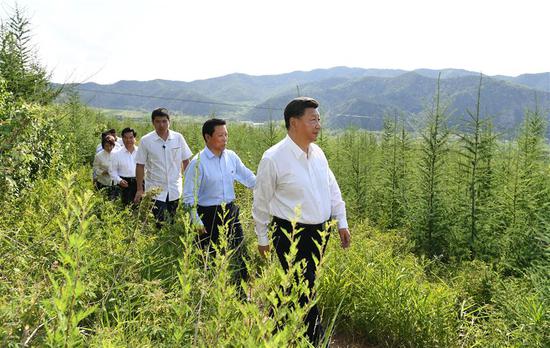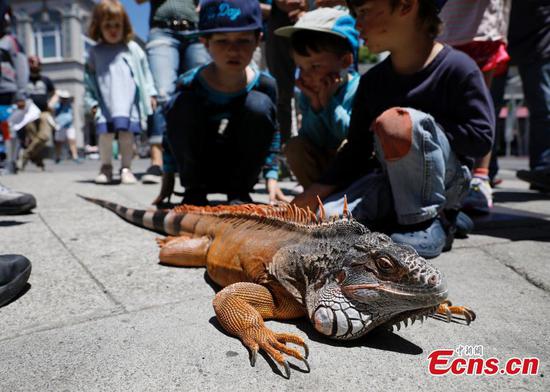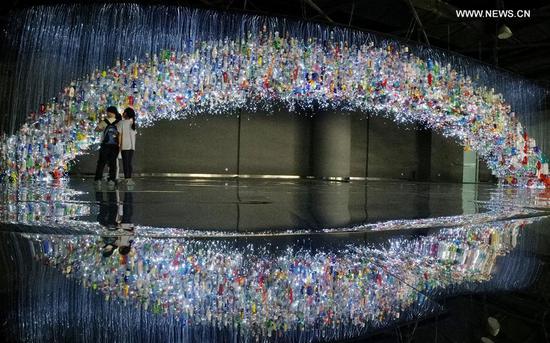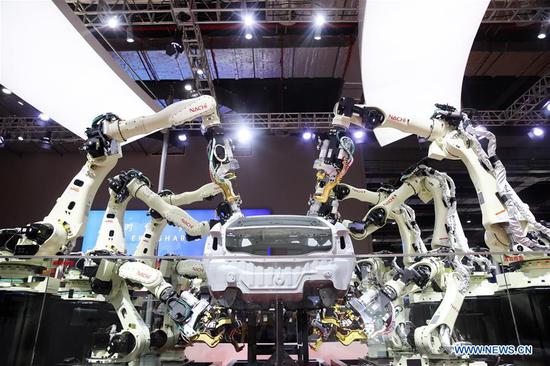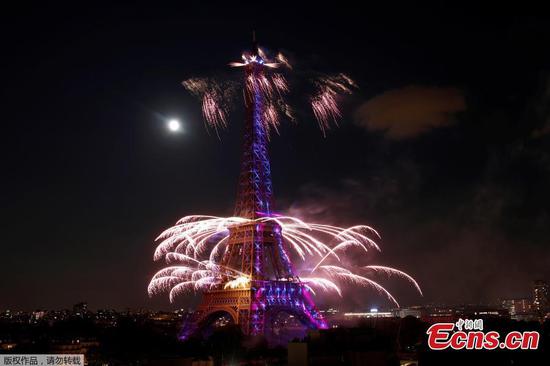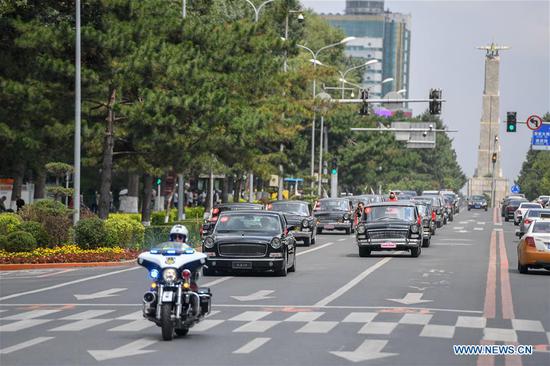
Chinese visitors enjoy Times Square in New York. China is the third-largest source of overseas travel to the United States, producing 3.2 million visitors in 2017 and accounting for 8.2 percent of all overseas travel to the country. (Photo by Liao Pan/China News Service)
Significant impact
ForwardKeys CEO and cofounder Olivier Jager said the company's findings strongly suggest that the trade war has had a significant impact on Chinese tourism to the U.S.. "We estimate that the cost to the U.S. economy will be north of half a billion dollars in 2018. Chinese spending in this sector is significant-it amounts to the largest category of U.S. services exports to China," he said.
David Tarsh, a spokesman for the company, said the majority of Chinese outbound tourists visit countries in Asia such as Japan or South Korea, and fewer than 10 percent of them venture as far as the Americas.
He said Chinese outbound tourism is "very healthy", with this market growing from January to April.
"America is actually losing business, compared with the same first four months of last year, and that's in the context of travel to other parts of the world from China rising," he said.
"So if you are responsible for attracting Chinese to the Americas, you wouldn't be feeling very pleased with yourself," he added.
Christopher Heywood, executive vice-president at NYC &Company, the official tourism marketing organization for New York City, noted an 11.9 percent decline in spending from Chinese travelers during the first quarter of this year.
"We understand that the Chinese government first of all has issued some warnings, (about) frequent shootings, and also they've issued, I think, a warning that visa processing is taking longer. But more than anything, we are concerned about the trade war in general, and just what that's doing to the economy, and whether that's restricting travel and deterring people from coming to the U.S.," Heywood said.
China is an important and lucrative market for New York, Heywood added. Chinese travelers comprise the second-largest international market for the city, behind the United Kingdom.
In 2016, New York welcomed 951,000 Chinese visitors, a 9.3 percent rise from 2015. In 2017, the city received 1,038,000 Chinese, surpassing 1 million visitors for the first time.
Chinese also tend to "spend big", Heywood said, with such visitors forking out $3,000 per person per trip, which translates to more than $3 billion in total spending.
"We don't want to take the trade war and have that escalate to start to include restrictions on travel from China, because it's a market that is so lucrative for the U.S., and certainly for New York City," he said.
Citing remarks by New York Mayor Bill de Blasio at the June 4 New York Police Department Medal Day news conference, Heywood said, "New York City is the safest big city in America."
He said many of the hotels, museums and other attractions in the city are courting the Chinese market. New York has also increased its social media presence in China by setting up WeChat and Weibo accounts.
NYC &Company will continue with its sales and marketing efforts in the Chinese market, Heywood said, adding that he is optimistic about the long-term potential for Chinese visitors.
"New York City is 'China-ready', and we warmly welcome Chinese visitors. We hope that they will overlook some of the hurdles and continue to plan their travel to New York, because we remain open for business."
Meanwhile, on the West Coast, a top Los Angeles tourism official expressed similar optimism about prospects for U.S.-China tourism by emphasizing the importance of "people-to-people exchanges", an expression he said he borrowed from President Xi Jinping.
"What makes people-to-people relationships possible is tourism. We are not transactional in our thinking, or shortsighted. We believe that the best, smart thing to do is to look very long-term," said Ernest Wooden Jr., president and CEO of the Los Angeles Tourism and Convention Board.
"These trade tensions and what other macroeconomic voices are going to say-they will pass, but interest in traveling to Los Angeles is going to be foremost on the minds of long-haul travelers for many decades to come, and that's what we are looking forward to," Wooden said.
While the numbers of Chinese tourists to the U.S. have declined at national level, Los Angeles has actually gained market share in these visitors, owing to the strong relationship the city has built with its travel trade partners in China, Wooden said.
"I think that our tourism is a little different. We have enjoyed a larger percentage of tourists coming to LA, and did not experience the same drop that the U.S. experienced overall," he said. "The national number dropped by 5.7 percent for the past year, but during this time in LA, it's grown by 6.9 percent."
Last year, Los Angeles welcomed 1.2 million visitors from China, a rise of 6.9 percent from the previous year, which saw 1.12 million Chinese tourists arrive in the city.
Los Angeles has four offices in China-in Beijing, Shanghai, Guangzhou, capital of Guangdong province, and Chengdu, capital of Sichuan province. This year, more than 100 nonstop flights from 14 major Chinese cities will land in and depart from Los Angeles each week, the equivalent of 30,420 seats a week.
Wooden said: "We don't think we've scratched the surface. With 1.3 billion people there (in China), we only had 1.2 million people come ... We know now that the Chinese are just as interested, if not more interested, in traveling the world, as any other international travelers."










